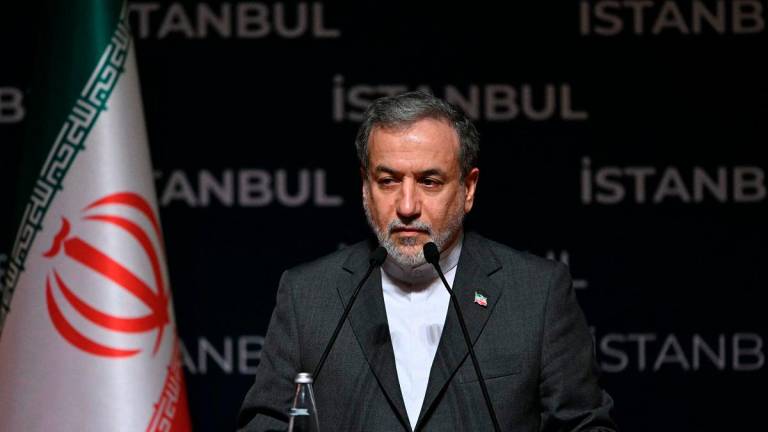Iran has accused the United States and Israel of crossing a critical red line following coordinated military strikes on its nuclear facilities, with Tehran vowing to defend itself against what it described as acts of aggression.
Speaking on Sunday, June 22, at the Organisation of Islamic Cooperation (OIC) meeting in Istanbul, Iranian Foreign Minister Abbas Araghchi said the latest attacks marked a severe escalation. “They crossed a very big red line by attacking [Iran’s] nuclear facilities,” he said.
The comments came hours after former US President Donald Trump confirmed that American warplanes bombed three Iranian nuclear sites. The strikes followed nine days of Israeli aerial operations targeting Iran’s nuclear infrastructure, including the underground uranium enrichment facility at Fordow.
“The most dangerous one happened only last night,” Araghchi said, admitting that the full extent of the damage was still unknown. “I still do not have exact information about the level of damages, but I don’t think it matters… Last night’s attack was a grave crime.”
He accused the United States of undermining global stability. “Through this action, the United States has dealt a serious blow to international peace and security,” Araghchi said, adding that Iran would respond “by all means necessary” to defend itself.
In response to the escalating crisis, Araghchi announced he was en route to Moscow for talks with Russian President Vladimir Putin. “I’m going to Moscow this afternoon to hold serious consultations with the Russian president tomorrow,” he stated.
Trump, following the strikes, called on Iran to agree to end the conflict. However, Araghchi dismissed the idea of renewed negotiations as “irrelevant,” claiming the diplomatic process had already been betrayed by US support for Israel.
“The world must not forget that it was the United States which in the midst of a process to forge a diplomatic outcome, betrayed diplomacy by supporting the genocidal Israeli regime’s launch of an illegal war of aggression on the Iranian nation,” he said.
“So we were in diplomacy, but we were attacked… They have proved that they are not men of diplomacy, and they only understand the language of threat and force.”
Turkey, the host of the OIC summit, also warned that the strikes could trigger a wider global conflict. “The ongoing developments could cause the regional conflict to escalate to a global level. We do not want this catastrophic scenario to come to life,” Turkey’s foreign ministry said in a statement.
As international concern mounts, calls for restraint and a return to diplomacy are growing, but the road ahead remains highly uncertain.

